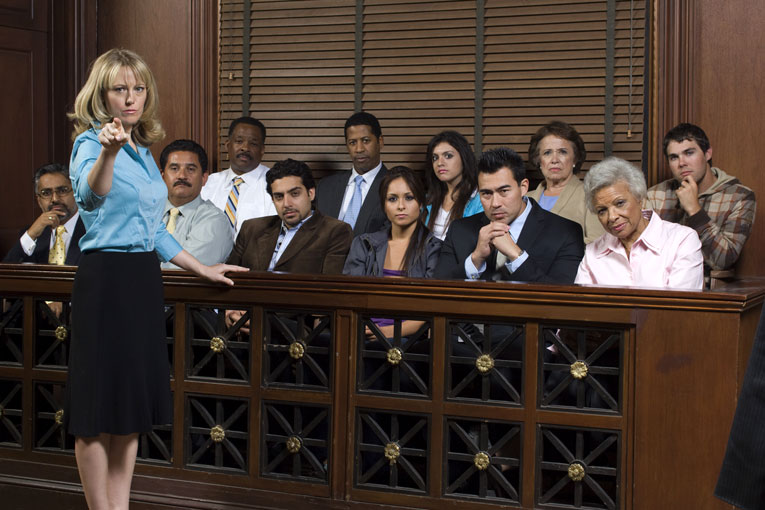Do you legally have to attend Jury Service?

Receiving a jury summons can be both daunting and disruptive to your daily life, but the answer is clear: jury service is a legal obligation in the UK that you must fulfil. Failing to respond to a summons or attend court can result in serious consequences, including fines of up to £1,000. While there are legitimate reasons for deferral or exemption, these must be properly documented and approved. Whether you are concerned about work commitments, financial impact, or qualifying conditions, it is advisable to consult an employment lawyer who can guide you through your rights and obligations.

Key takeaway: Is jury service mandatory in the UK?
Learn everything you need to know about jury service in the UK before responding to that summons.
Who is exempt from jury service UK?
Many people wonder what is jury duty when they receive their first summons. At its core, it is a fundamental part of the UK justice system where citizens serve as jurors to hear evidence and make decisions in court cases.
Jury service is a legal obligation for most British citizens when called. To be eligible, you must be registered to vote and have reached the age of 18, but not yet turned 70. Additionally, you need to have lived in the UK, Channel Islands, or Isle of Man for at least five years since your 13th birthday. These diverse selection criteria ensure trials are judged fairly by peers from all walks of life. However, specific exemptions determine who can and cannot serve.
Who is exempt from jury duty?
The following groups are automatically disqualified from jury service:
- Those detained under the Mental Health Act.
- People currently on bail awaiting criminal proceedings.
- Individuals with criminal convictions in the last 10 years.
- Anyone who has completed jury service within two years.
- Persons lacking capacity under the Mental Capacity Act 2005.
Furthermore, those working within the justice system are automatically excluded from jury duty, including judges, magistrates, police officers, community support officers, prison service officers, probation officers, and Crown Prosecution Service employees. This exemption ensures there is no conflict of interest in the administration of justice.
Getting excused from jury service: Valid reasons
While jury duty is a legal obligation, certain circumstances may qualify you for deferral or exemption. Courts carefully consider each request based on individual merit and supporting evidence.
1. Medical grounds for jury service exemption
A letter to be excused from jury duty for medical reasons UK must include these qualifying conditions:
- Serious ongoing health conditions.
- Scheduled surgery or medical treatments.
- Physical disabilities preventing court attendance.
- Mental health concerns affecting your ability to serve.
- Ongoing medical appointments that cannot be rescheduled.
2. Work-related exemption requests
Your employer may support your request to postpone jury service if:
- You have critical project deadlines.
- Your role involves essential public services.
- You are the only person who can perform your role.
- Your absence would seriously damage the business.
- You have pre-scheduled business commitments abroad.
3. Pre-existing commitments
The court may consider deferral for these pre-arranged circumstances:
- Educational exams.
- Non-refundable holidays.
- Care responsibilities for dependents.
- Professional qualification assessments.
- Important family events (weddings, graduations).
To support your exemption request for jury duty, you will need to provide specific documentation. This includes official medical certificates or doctor’s letters for health-related claims, and written statements from your employer explaining any significant business impact. If you have pre-paid travel arrangements, educational commitments, or care responsibilities, you must submit supporting evidence such as booking confirmations, course registration documents, or care arrangement details.
Skip jury service? Know the serious consequences
The UK justice system imposes strict penalties for non-compliance with jury duty obligations. Below is what you need to know about specific violations and their consequences.
What happens if you do not answer the summons?
When you ignore your jury service summons, the following actions are triggered:
- Risk of criminal charges in serious cases.
- Record of non-response added to your file.
- Potential court summons for non-compliance.
- Follow-up letter demanding immediate response.
- Automatic £1,000 fine issued without further notice.
What happens if you do not show up?
Failing to attend serving on a jury in a UK court on your assigned date results in:
- Potential criminal record.
- Warrant issued for your arrest.
- Contempt of court proceedings initiated.
- Immediate notification to the presiding judge.
- Jury service loss of earnings eligibility revoked.
What happens if you are late?
Arriving late for jury duty can lead to:
- Daily reporting requirements.
- Formal warning from the court.
- Extension of your service period.
- Possible fine at the judge’s discretion.
- Requirement to explain your tardiness to the judge.
Your non-compliance with jury service can have far-reaching consequences beyond immediate penalties. A record of failing to attend can impact your future jury selection and appear on employment background checks, potentially limiting professional opportunities. This record may also affect travel visa applications and could lead to higher insurance premiums, as it reflects on your reliability and compliance with legal obligations.
Do you need legal help with jury service?
While most jury duty matters are straightforward, certain situations may require professional legal guidance to protect your rights and interests.
Legal representation becomes crucial in these jury service situations:
- Rejected exemption appeals: Legal expertise helps strengthen your appeal with properly structured arguments and relevant evidence to support your case.
- Discrimination cases: A solicitor can file employment tribunal claims, gather evidence of discriminatory treatment, and help secure appropriate compensation.
- Complex medical exemptions: A lawyer can coordinate with medical professionals, present comprehensive medical evidence, and argue your case effectively before the court.
- Non-attendance fines: Legal counsel can appeal the fine by presenting mitigating circumstances, gathering supporting evidence, and representing you in court proceedings.
- Employer disciplinary action: A lawyer can challenge unfair treatment, ensure your job protection rights, and negotiate with your employer to prevent any negative impact on your employment.
FAQs
- Do you get paid for jury service in the UK? No, but you can claim jury service expenses for travel, food, and other costs. You may also claim for loss of earnings up to a daily maximum rate.
- How long does jury duty last? Most cases last 10 working days, but some trials can extend several weeks or months. You will be informed if it is likely to be a longer case.
- How does jury duty work? You will attend court, hear evidence, discuss the case with other jurors, and help reach a verdict. Each day typically runs from 10am to 4:30pm with breaks.
- Can I work while on jury service UK? Yes, you can work outside court hours if you wish, but you must attend court as required during the day.
- How often can you be called for jury service UK? You cannot be called again within two years of serving. After that, you could be selected at any time.
- Can an employer refuse jury service? No, employers must allow you to attend. They can only ask you to defer if your absence would seriously harm their business.
- If jury duty is cancelled, do I have to go to work UK? Yes, if you receive notice of cancellation, you should return to work unless arranged otherwise with your employer.
- If jury duty is cancelled, will I get called again? Yes, you may be called again at any time as your name returns to the random selection pool.
- What’s the difference jury duty and jury service? There is no difference – both terms refer to the same legal obligation to serve as a juror.
- Is jury duty Scotland different? Scotland has its own distinct legal system, but the basic principle of jury service remains similar, with some procedural differences.
- How likely is it to be called for jury service UK? The selection is random, but most people are called at least once in their lifetime. Some may never be called, while others might be selected multiple times.
- Has anyone been fined for not attending jury duty UK? Yes, courts regularly issue £1,000 fines to people who fail to attend without valid reason or notification.
- Who cannot be called for jury duty UK? You cannot serve if you have criminal convictions, are currently on bail, are detained under the Mental Health Act, lack mental capacity, or have served as a juror in the past 2 years. Legal professionals such as judges, lawyers, police officers, and prison officers are also exempt.
Jury service is a legal obligation that helps maintain the UK justice system. While attendance is mandatory when called, the process is well-structured with clear guidelines for exemptions, deferrals, and financial support. Understanding your rights and responsibilities ensures a smoother experience.
Facing jury service challenges?
From employer disputes to exemption requests, Qredible’s network of solicitors are here to protect your interests.
KEY TAKEAWAYS
- Jury service is a mandatory legal obligation in the UK for eligible citizens aged 18-70, requiring attendance when summoned unless you have an approved exemption.
- You must respond to a jury summons within 7 days of receipt, or you risk facing a fine of up to £1,000 and potential criminal charges.
- Certain groups are automatically exempt, including those with recent criminal convictions, legal professionals, and anyone who has served on a jury within the past two years.
- While jury service is unpaid, you can claim expenses for travel, food, and loss of earnings, and your employer must allow you time off to attend.
- Professional legal help may be necessary if you face workplace discrimination, need to appeal rejected exemptions, or receive fines for non-attendance.
Do you need a solicitor?
Find a solicitor on Qredible in just a few easy steps
















